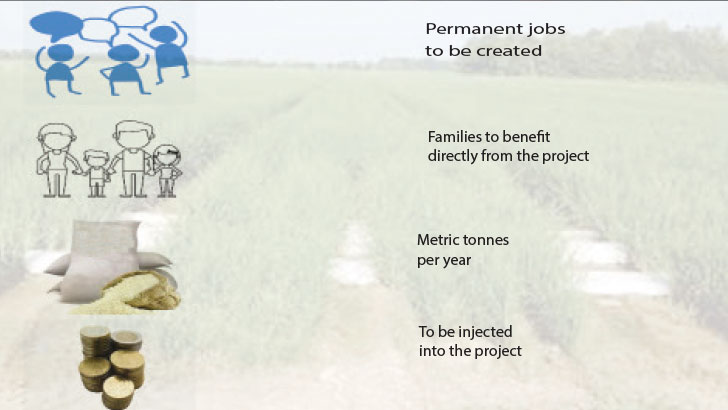K31billion rice Scheme in offing
In a bid to add value and satisfy local and international rice the Green Belt Authority (GBA) is developing a K31.2 billion rice production and processing scheme in Karonga.
The $40 million (about K31.2 billion) capital for the project comprises $15 million (K11.7 billion) for scheme development and $ 25 million (K19.5 billion)for the agro processing facility.

The Nthola-Illola-Ngosi Rice Production Scheme, will be located in Traditional Authority Kyungu, where about 14 000 persons in about 2 400 families are expected to be direct beneficiaries.
It will be developed over 1000 hectares (ha) of irrigable land for increased rice production, estimated at 5000 metric tonnes annually.
Speaking at the weekend in Karonga when he briefed the district executive committee, GBA acting chief executive officer Amon Mluwira said the project will also help establish one agro-processing facility for value addition.
He said: “It is expected that the project will open business opportunities for those in the crop processing, trading and export business.
“Input suppliers will also benefit from the project as it will widen the market for inputs. The project is expected to create around 300 permanent jobs and thousands of casual employment.”
Mluwira said scheme development will begin next month, where the GBA will tender out field roads, among other works.
According to the project design, farmers are expected to form an association which will enter into partnership with GBA and create a joint venture company to manage the scheme, with a proposed shareholding of 49 percent for GBA and 51 percent for the farmers.
He said: “That is why we have gone ahead to establish the agro-processing facility. One of our thematic areas is easy access to market or farmers, so we can’t start a project without identifying the markets.
“This is a bankable project because we did a feasibility study which showed that it is successful.”
Karonga acting district commissioner David Gondwe said they expect the project to benefit the people of Karonga, through realisation of more revenue from their toil.
According to Ministry of Agriculture, rice production in Malawi has been declining since 1975. Both area under production and yield per hectare of the crop has been fluctuating, and production is not enough to meet the market and national demand as a result Malawi depends on imports to meet the shortfall.
Malawi has 600 000 ha of land that can be used for rice production. If this area was fully utilised, the country could produce at least three million tonnes of rice per annum.





